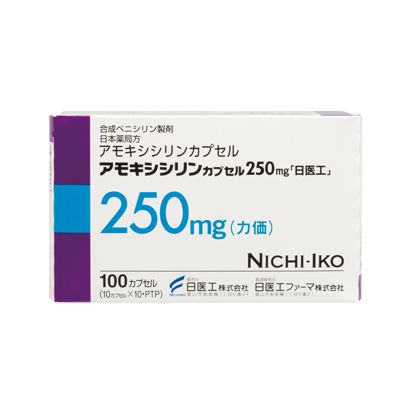
Amoxicillin Capsules: A Broad-Spectrum Antibiotic for Multiple Infections
In modern medicine, antibiotics are indispensable in treating bacterial infections.
As a classic penicillin-type antibiotic, amoxicillin is widely used due to its broad-spectrum antibacterial activity and relatively low incidence of side effects. This article provides a detailed overview of the indications, dosage, and precautions for the use of amoxicillin capsules.
I. Overview of the Medication
Amoxicillin capsules are penicillin-based antibiotics that work by inhibiting bacterial cell wall synthesis. They possess potent bactericidal activity against a wide range of bacteria, including Streptococcus spp., Streptococcus pneumoniae, Haemophilus influenzae, and are commonly used to treat infections in the respiratory tract, genitourinary tract, skin, and soft tissues.
Composition and Specifications
Active ingredient: Amoxicillin trihydrate 250 mg
Excipients: Lactose monohydrate, magnesium stearate
Capsule shell components: Red No. 3, Yellow No. 5, Blue No. 1, sodium lauryl sulfate, gelatin, titanium dioxide
Packaging specification: 100 capsules per bottle
II. Indications
Amoxicillin capsules are indicated for the treatment of various bacterial infections, including:
Respiratory Tract Infections
Upper respiratory tract infections: Otitis media, sinusitis, pharyngitis, tonsillitis
Lower respiratory tract infections: Acute bronchitis, pneumonia
Genitourinary Tract Infections
Cystitis, urethritis
Skin and Soft Tissue Infections
Boils, impetigo, cellulitis, etc.
Other Indications
Peptic ulcer and duodenal ulcer: For Helicobacter pylori eradication
Gastric MALT lymphoma: As part of H. pylori treatment
Idiopathic thrombocytopenic purpura (ITP): In cases linked to H. pylori
Post-endoscopic treatment of early gastric cancer: For prevention of H. pylori reinfection
III. Dosage and Administration
For General Infections
Adults: Usually 250 mg per dose, 3 to 4 times daily. The dosage may be adjusted based on age and severity.
Children: Typically 20–40 mg/kg/day, divided into 3–4 doses. Maximum dose should not exceed 90 mg/kg/day.
For H. pylori Eradication
Adults: 750 mg per dose, twice daily for 7 days. Should be combined with other antibiotics and proton pump inhibitors. Follow physician instructions precisely.
IV. Precautions and Contraindications
Precautions
Allergy history: Contraindicated in individuals allergic to amoxicillin or other penicillin antibiotics.
Special populations:
Contraindicated in patients with infectious mononucleosis
Use with caution in those allergic to cephalosporins
Patients with allergic conditions such as asthma, rash, or urticaria require close monitoring
Caution in patients with severe renal impairment
Caution in malnourished individuals or those unable to take oral medications
Elderly patients may be more prone to side effects and require close observation
Common Adverse Reactions
Gastrointestinal: Nausea, vomiting, diarrhea
Dermatologic: Rash, itching
Allergic reactions: Anaphylaxis (rare but serious)
Discontinue use immediately and seek medical attention if any severe allergic reactions or side effects occur.
V. Conclusion
Amoxicillin capsules are a trusted, broad-spectrum antibiotic effective against a variety of bacterial infections. By inhibiting bacterial cell wall synthesis, it offers strong antibacterial action with relatively mild side effects. When used as prescribed and under medical supervision, it can maximize therapeutic effects and ensure patient safety. For those needing treatment for the above conditions, amoxicillin remains a reliable and effective choice.
